 Noah Cicero is a writer of points and the pointlessness between them. He makes stands often to refute them, or simply put them into a spin to see what can be excavated. In this way, he is much more an experiential writer, who looks at an emotional state as an entry point to filtering other questions. These barbaric yawps can bring a world into chaos or standstill. Regardless of the movement, it is a single intention, to see the ground in front of him that makes Noah such a gift as a writer. If we look hard enough, we just might see reality. Then we can shake our fists, make a choice, or ask why all over again.
Noah Cicero is a writer of points and the pointlessness between them. He makes stands often to refute them, or simply put them into a spin to see what can be excavated. In this way, he is much more an experiential writer, who looks at an emotional state as an entry point to filtering other questions. These barbaric yawps can bring a world into chaos or standstill. Regardless of the movement, it is a single intention, to see the ground in front of him that makes Noah such a gift as a writer. If we look hard enough, we just might see reality. Then we can shake our fists, make a choice, or ask why all over again. Noah is the author of The Human War (Fugue State Press, 2003), The Condemned (Six Gallery Press, 2006), The Living and the Dead (Bear Parade), and Treatise (Noah Cicero, 2007). Recently, we were able to chat about The Human War , hell, and distant planets. I didn't expect to like hell so much. It's a pretty nice place. I might open a Denny's. People get hungry. They might even read Noah Cicero.
Pirooz Kalayeh: I like THE HUMAN WAR. I like the relationship with Kendra. I like Denny's too. I also like how the book reads like a poem. It reminds me of Allen Ginsberg's Howl. It also reminds me of Walt Whitman. The dialogue makes me think of Quentin Tarantino.
Noah Cicero: Your references to Walt Whitman and Ginsberg are accurate in this way: I was watching a show on Whitman and they talked about how he tried to imitate the sounds of an orchestra, and one day I was drunk and reading Leaves of Grass out loud to some girl and I noticed that as you read Whitman your voice kept getting louder and louder, faster and faster, it had crescendos and refrains and low and high points. And Whitman could control this through the strategic use of periods and commas and starting new lines.
That a writer could use commas, periods, and where new lines start to make the reader see the passage into music, and this music gives a higher level of meaning to the writing.
But I was not thinking about orchestra music when I wrote it. When I write the music, I usually try to imitate Jimi Hendrix's Machine Gun, Led Zeppelin's Achilles Last Stand, and Metallica's Orion, 10-minute rock songs that resemble orchestra music. All three start off slow, and eventually lead to total chaos, they aren't chaos, because the musicians know exactly what they are doing, and have planned and are carrying it out. But it gives the sensation of chaos, of a person going totally mad under the pressure of this world.
I want THE HUMAN WAR to pick up speed as it goes on, and gets going very fast until the reader starts feeling the chaos, starts feeling really confused, starts going a little mad themselves. Then it slows down, and it comes back, repeated several times.
Because on that night, a lot of us felt very confused, very chaotic inside, and well a lot of us feel this all the time.
Pirooz Kalayeh: Do you really care if people get this book or not? Is that important to you?
Noah Cicero: People get several things from the book, the people that don't like it call the characters adolescent: I wouldn't call the characters adolescent, the characters in the book are what Nietzsche called, The Last Men. They are people lying around doing nothing, living for no reason, going on, they don't truly believe or truly not believe in anything. Foer writes a book about a 9 year old because he is at the mental stage of a nine-year-old but isn't conscious of it. The difference is, when I write, I don't write about 9 year olds, I write about people in their twenties acting like nine year olds. But they aren't really acting like 9 year olds; they are acting like Nietzsche's version of The Last Man.
I would also classify the characters in Tao Lin's EEEE EEE EEEE as The Last Men.
To add a little to this: De Beauvoir says basically that the adolescent feeling is that of feeling worthless, of feeling worthless and powerless to the world - of not really caring about anything because they are conscious if they want to say it or not, that it is pointless to care about anything, because they are always faced with their needless place in the modern world. The Last Man feels needless and worthless also, but they don't cut themselves or listen to Good Charlotte. They go to work like zombies, lay around watching television, beat their kids and spouses, hate themselves, march to their death with their head down, tears falling our of their eyes, seducing themselves with painkillers, beer, drugs and silly bourgeois notions that life is worthwhile when everything they do is saying silently to the world, "I feel worthless."
 The people who do get the book understand because they understand it themselves. That we are lost, confused, our minds are chaos, and we are faced against an absurd system of politics, media, and economics completely powerless to do anything about it. All I tried to do was write that feeling out, give language to that feeling.
The people who do get the book understand because they understand it themselves. That we are lost, confused, our minds are chaos, and we are faced against an absurd system of politics, media, and economics completely powerless to do anything about it. All I tried to do was write that feeling out, give language to that feeling.It is my belief, my philosophy that the writer's job is to translate the feelings we all have into words, so the reader can better understand their own situation in life. The readers of the world are plumbers, truck drivers, doctors, engineers, schoolteachers, servers, etc. They have a job to do, they don't have the time to go off by themselves and dwell on the personal hell of mankind. They don't have the time to sit and study Dostoevsky, Nietzsche, and Sartre. That is the writer's job. The writer's job is to collect information, study reality under a microscope, and then write it out. Then the reader hopefully can read it and understand their own reality better.
Pirooz Kalayeh: Imagine I am from the planet, Gliese 876 b. I am about 15 light years away. You have just told me about THE HUMAN WAR. You have mentioned THE LAST MEN and Tao Lin's EEEEE EEE EEEE. I am curious about mankind's personal hell. I am unclear about the concept of hell. What is it? Why do people need to think about it? How can people identify it? Is it just like Gliese 876 c or d?
 Noah Cicero: Mankind is condemned to several things:
Noah Cicero: Mankind is condemned to several things:1. Everyone is born with The Will to Power. Now this power can take many forms. One person might choose to exert power by creating art, by writing, painting, making television shows, cooking, playing sports, singing, having an awesome myspace page, breast implants etc. Other might people might manifest this need for power by becoming head managers of restaurants and terrorizing the staff, becoming a politician, a 4th grade teacher, etc.
A lot of people choose to have children and exert power over them. This can take many forms, one parent can be a teacher to a child, another parent might want to ruin the child like they have been ruined.
Which leads to the next thing.
2. Humans are born into what can be called Solitary Confinement with two Gods. This solitary confinement is commonly called, "Childhood." A human baby is born nothing, a blank nothing, then the world forces it to believe it is something, that it is a certain race, certain religion, from a certain country, that it IS something, when really it is nothing.
The nothing baby has no choice in the matter. The baby is defenseless because of its size against the world. The child learns that those who have more physical force control them. That those with authority must be obeyed. This is not true, but through regular beatings, being stuck in the corner and constant yelling at the child they succumb to this rational.
 It can be called Solitary Confinement because a child can go nowhere, learn nothing, do anything, unless the Gods called parents allow it to happen.
It can be called Solitary Confinement because a child can go nowhere, learn nothing, do anything, unless the Gods called parents allow it to happen.3. The brain of a human is simple but complex. A human enters a situation and the stimulants cause behaviors that occurred in previous situations that they have done or seen shoot up into their head and they choose one to deal with the situation. How they deal with the situation is called, "Behavior." One would think and many have thought this could be easy to analyze and make great humans with: But it isn't because everyone living human has had a different life, with different situations, so everyone enters every certain situation with a slightly to largely different perception on it.
One human might get kicked in the face and cry and call the police, one human might get kicked in the face, go get a gun and shoot the attacker, one person might get kicked in the face and feel some kind of sexual excitement from it.
4. Humans are condemned to choose. A lot of humans do not like choosing. So they adopt very strict identities. There are many identities among humans, but they can be existentially put on a scale. It is obvious the more fearful one is of choice, the more strict identity they try to have. The less fearful one is of choosing, the less they care about having a strict identity.
5. Mankind generally is terrified of their nothingness. To admit they are nothing and can totally choose their actions terrifies them. They feel safe hiding behind race, gender, nationality, political party, favorite bands and authors, behind clothes, how expensive the things they own are, what car they drive, where they live, who is beneath and who is above, they hide behind false pretenses make-believing that their lives mean something more than they are, they do not like to admit that they are just bodies of meat walking the earth one day to die like the plants and animals that surround them.
 6. The human is a terrified creature. A human lives on a planet adrift on the cosmos, a cosmos much larger than Hollywood and even Britney Spears new haircut. They are condemned to live on this rock with no reason for the rock even being there. Let alone them being there. They are forced to know everyday that when they die they will be replaced, that they are needless. The universe shows each human their needlessness without remorse.
6. The human is a terrified creature. A human lives on a planet adrift on the cosmos, a cosmos much larger than Hollywood and even Britney Spears new haircut. They are condemned to live on this rock with no reason for the rock even being there. Let alone them being there. They are forced to know everyday that when they die they will be replaced, that they are needless. The universe shows each human their needlessness without remorse. There are more things that cause hell, but they concern one's era and geographical location. These inescapable six things have always been with mankind and it doesn't seem like at any point in my lifetime one of these six will be able to be erased from humanity.
PK: Let me see if I hear you right. Mankind is condemned to exert power over other people; solitary confinement, otherwise known as childhood, where they have no choice in keeping their nothingness, because power is being exerted over them; different complex, behaviors; choice; nothingness; and that they will die needlessly, because there is no point in them being on this rock, known as Earth, because there is no point for this rock's existence either.
How do you know for sure? Is it possible you don't know with absolute certainty whether there is no point in being on this rock? And if we eradicate either possibility, regardless of certainty or otherwise, aren't we left with not knowing? What if we didn't know at all? What would you say from this space of not knowing about hell? Is hell even hell anymore? What is it if it's not hell?
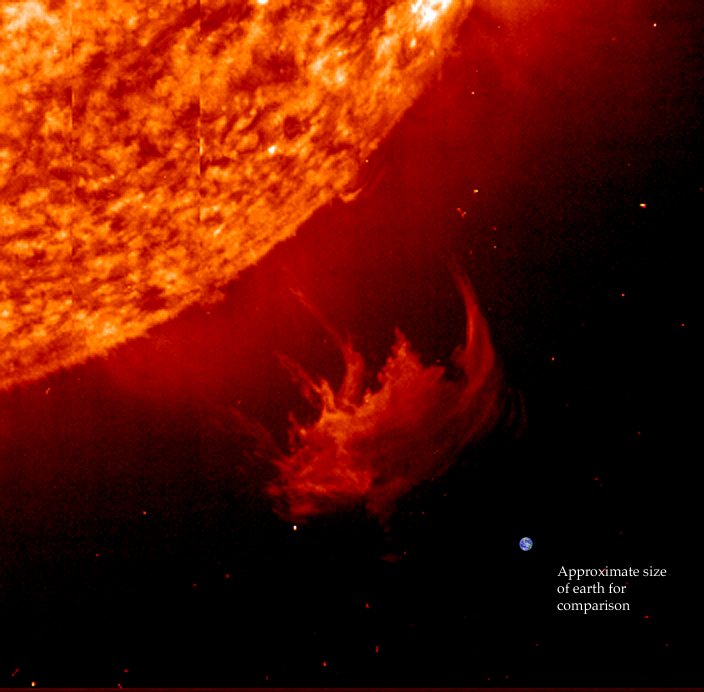 Noah Cicero: This is really a question of "points." The sun will engulf the earth someday and then this will not matter, to people on a planet 700 billion light years away. If there is a God or astral plane or whatever, It doesn't obviously mess with our world. But there are points in the world, a lot of points. We have our own points, each individual pointing their bodies in certain directions to achieve goals, if it is to be a lawyer or carpenter to pay the bills or to get some oxies, all points. There are even more points. The point of the American to the Iraqi insurgent is that the American has killed their families and blown up their houses and therefore their point is to kill them. The Hutu's point is to kill Tusi, and at the same time to the Hutu the Tusi's point is to kill them. And the same to the Tusi.
Noah Cicero: This is really a question of "points." The sun will engulf the earth someday and then this will not matter, to people on a planet 700 billion light years away. If there is a God or astral plane or whatever, It doesn't obviously mess with our world. But there are points in the world, a lot of points. We have our own points, each individual pointing their bodies in certain directions to achieve goals, if it is to be a lawyer or carpenter to pay the bills or to get some oxies, all points. There are even more points. The point of the American to the Iraqi insurgent is that the American has killed their families and blown up their houses and therefore their point is to kill them. The Hutu's point is to kill Tusi, and at the same time to the Hutu the Tusi's point is to kill them. And the same to the Tusi. The point of the telephone is make calls on it. But telephones have several times been used to murder people, so for some people, the point of the phone was to kill people. A computer has several points, to communicate with people, to learn things, to watch music videos, and to get sexual enjoyment. The point of cigarettes to me is to relieve stress, to another the point of cigarettes is the thing that murdered grandpa.
I would not say living on earth is pointless. There are a million points in reality. To try to live by a philosophy of meaninglessness is absurd, if a person truly thought everything had no point, then they couldn't even operate a computer or use a telephone. The fact that they do, gives reality Meaning. But at the same time the stars, ancient ruins, rock formations made millions of years ago, the ocean notify mankind of their needlessness. But on a small microcosmic scale man has meaning if he wants it or not. Because even if you are a hermit, the point of your genitals, is to shit piss and fuck.
Concerning if we know, we can know everything. Someone said, I can't remember who, "The world is true." Wittgenstein said, "The world is all that is the case." If it happened in the universe we can figure it out. That is one of the main things that causes these conservativisms today. Before science, mankind did not know a lot of things. Now as each day passes we know more and more. Mankind likes mysticism, mysticism has hierarchy, it allows for racism, for snobbery, for one man to be born rich and another to be poor, it makes religion and nationality true, it makes women below man, black below white, etc. Mankind must accept and many have, that everything can be found out, that there is truth behind everything, But the truth is mostly horrible, it tells the talentless lazy man that he is talentless and lazy and that there is no race below them and they have no right to oppress women. It tells the person that gets their self-worth from nationality that nationality is an accident, mere chance and means nothing. It tells the poor person that wants there to be a God to send them to heaven and punish their oppressors, that at the end there will be no heaven and no punishment for their oppressors. It tells the Middle-Class Christian Republican that they are murderers and not People of God.
But they already know these things, because you can't lie to yourself about something if you don't already know what you are lying about.
PK: Yes, there are a lot of points in the world. Some people make their points into swords, machine guns, or a billboard campaign on 95 South. Some go to Denny's, a strip club, or Crapiokie. Some even write books, post on a blog, or conduct an interview. I hear you.
The characters in Human War live with many different points. Kendra has the potential to be anything, but prefers working at Pizza Hut. Jimmy is outraged at the Iraq War, but can't change that reality, so he placates himself with a boner. Marc wages between outrage, resistance, and brief moments of acceptance in what is happening around him.
The writing of novels is also an act of resistance. We set up lies to counter other lies, when we know the truth, or are in the process of finding it by writing amidst our own. In the end, reality is the final truth. We have to shit, piss, and fuck. We are living in our respective lives. We continue to see more lies. People make points to counter these, and we keep living until we don't.
I find life to be a constant check of when I am lying to myself about reality. When I accept the truth, I can actually see the choices in front of me. If I'm really clear about reality, the choices don't seem like choices. They just are what they are. My boss says, "Work harder!" I work harder. My mother says, "You need to get married." I ask, "Is that true? What's reality?" "No," I realize. "I don't have too. I could. Who knows?" Then I laugh. Things aren't that serious anymore. It's just another person with a story. It's not necessarily mine and I don't have to live it.
Politics are just another story. I can make many choices to help the world. In the United States, I can join rallies. I can speak at engagements. I can vote for candidates. I can give money to organizations. I can also help other artists. I can create my own art. Whatever it is. There are lots of possibilities.
What makes you laugh these days?
Noah Cicero: A lot of things make me laugh. I think you asked that, because maybe I seem from my writing that I wouldn't laugh. That I'm really depressed all the time. But that isn't true. When I write I'm alone, and I only write when the mood comes. My writing is like a violent outburst, or when someone finally tells someone or some people what they truly think about them. That's why my books aren't very long, because they are really just little outbursts of emotion. Like pent up shit, and suddenly it floods out.
To be honest I think I am happier than 99 percent of the population. Even though I'm a dishwasher and I don't have much, I think I get a lot more enjoyment out of life than most people with a lot more. I've been told many times that I was the happiest person people have ever met.
But the word isn't "happy", it is enjoyment. One isn't "happy" or in a "state of happiness." There is nothing happy about paying bills or washing the clothes, it really depends on how you get enjoyment out of the little events of life
I'm not sure, it seems like a lot of people don't get much enjoyment out of life. And enjoyment is subjective, and beyond language, so I'll stop there.
PK: You said it, brother. It's the little things. A nice night of lovemaking, the way I dance at a club in Itaehwon, Christina Aguilera singing "Beautiful", reading The Human War while some Korean vendor shouts in the streets below me, having the opportunity to talk to you and possibly kick it in the city. Man, that's what life's all about - the little things.
So what's the latest in Ohio? You going to stick with this dishwasher gig, or are you going to hit up something else? Any moves for the future? Books in the works? Music projects?
Noah Cicero: I'm probably going to stick with the dishwasher gig. It doesn't remotely tax my mind. And I would rather think about writing than any stupid job I might get. I like to dish wash and cook and work in kitchens. It is fun and easy. I like how there are different people there everyday. A lot of jobs have the same assholes there everyday. Restaurants have like 80 workers and only thirty are needed a day, so like different people are there and if you hate some people you work with, ALL the people you hate aren't there all at once. Cause I hate like five people I work with, but only like two are ever there at once, which I find good.
I like where I work too, because there are high schoolers, kids in votecs, kids in college to become lawyers, 50 year ex crack heads, people who go to jail all the time etc. Restaurants are strange, they are one of the few jobs that can have so many different kinds of people working and having to deal with each other in a small confined environment. You work at a factory, you have all the same kinds of blue-collar people, you work in an office, you have all white-collar office workers, you have janitors but you don't have to deal with them. But a restaurant is like a little microcosm of America as a whole. I don't know, it inspires me in a way; I've always done my best work while working at restaurants.
I just completed a book called The Insurgent. Hopefully someone will publish it and I'm planning on submitting Burning Babies again.
No music plans besides listening to Party Like A Rock Star over and over and over again.
 Noah Cicero is the author of The Human War (Fugue State Press, 2003), The Condemned (Six Gallery Press, 2006), The Living and the Dead (Bear Parade), and Treatise (Noah Cicero, 2007). His blog is The Outsider.
Noah Cicero is the author of The Human War (Fugue State Press, 2003), The Condemned (Six Gallery Press, 2006), The Living and the Dead (Bear Parade), and Treatise (Noah Cicero, 2007). His blog is The Outsider.

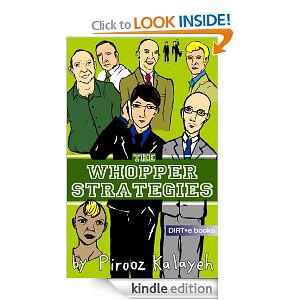
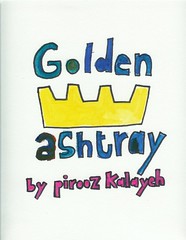

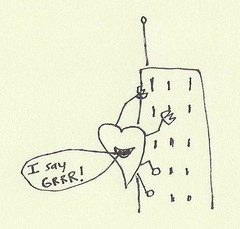

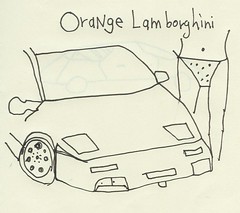





4 comments:
noah is the most graceful dishwasher.
I have no doubt.
I love the uniqueness of the accompanying illustrations.
Thank you, Kevin. Which was your favorite?
Post a Comment